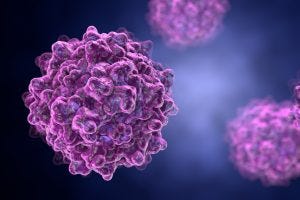August 9, 2019

Pfizer will use REGENXBIO’s adeno-associated virus (AAV) delivery platform for a gene therapy aimed at treating neurodegenerative disease Friedreich’s ataxia.
In REGENXBIO’s second quarter 2019, a major milestone was reached with the approval of Novartis/Avexis’ Zolgensma (onasemnogene abeparvovec). The gene therapy uses the NAV Technology Platform, created and validated by REGENXBIO’s founders and collaborators at the University of Pennsylvania, which uses over 100 adeno-associated viral (AAV) vectors to deliver engineered genes to cells.
The firm, which is also developing its own gene therapies, claims to have partnered with over 20 other companies and says there are 13 products in the clinic using the NAV platform.

Adeno-associated virus is used for gene therapy. Image: iStock/Dr_Microbe
The latest partner is Pfizer, REGENXBIO announced last week, with the NAV AAV9 vector being granted a non-exclusive worldwide license for the development and commercialization of Pfizer’s gene therapies for the treatment of Friedreich’s ataxia, a degenerative neuro-muscular disorder that affects about one in 50,000 people in the US.
“This License agreement further validates the strength of our intellectual property portfolio, and we continue to be encouraged by NAV Technology in the treatment of movement disorders,” CEO Kenneth Mills said during REGENXBIO’s Q2 2019 financial call this week.
REGENXBIO will receive an upfront payment and royalties, though specific figures have not been divulged.
For the three months ended June 30, 2019, REGENXBIO reported revenues of $7.9 million, down from $40 million in the same period last year. This was due to a one-off payment from AveXis in Q2 2018.
About the Author
You May Also Like



